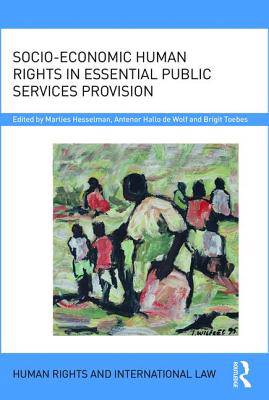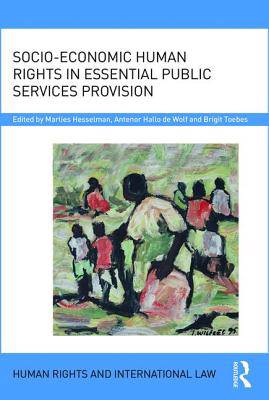
- Retrait gratuit dans votre magasin Club
- 7.000.000 titres dans notre catalogue
- Payer en toute sécurité
- Toujours un magasin près de chez vous
- Retrait gratuit dans votre magasin Club
- 7.000.000 titres dans notre catalogue
- Payer en toute sécurité
- Toujours un magasin près de chez vous
Socio-Economic Human Rights in Essential Public Services Provision
Description
There is a clear overlap between securing socio-economic human rights for all persons and arranging adequate access to essential public services across society. Both are necessary to realise thriving, inclusive societies, with adequate living standards for all, based on human dignity. This edited volume brings together the two topics for the first time. In particular, it identifies the common challenges for essential public services provision and socio-economic human rights realisation, and it explores how socio-economic rights law can be harnessed to reinforce better access to services. An important aim of this book is to understand how international socio-economic human rights law and guideposts can be used and strengthened to improve access to services, and assess socio-economic legal and policy decisions.
The volume includes contributions from different continents, on a range of different services, and engages with the realities of different regulatory settings. After an introduction that sets out the most important challenges for universal access to services - including sufficient resources mobilisation, private actor involvement and regulation, or the need for improved checks and balances - the book goes on to discuss current issues in services provision and socio-economic rights, as well as explores the place and role of private business actors in the provision of services. In particular, it assesses how the responsibility and accountability of such actors for human rights can be improved . The final part of the book narrows in on the under-explored human rights concepts of 'participation' and 'accountability', as essential prerequisites for better 'checks and balances'. Overall, this volume presents a unique and powerful illustration of how socio-economic human rights law supports improved access to essential public services for all.
Spécifications
Parties prenantes
- Editeur:
Contenu
- Nombre de pages :
- 346
- Langue:
- Anglais
- Collection :
Caractéristiques
- EAN:
- 9781138669659
- Date de parution :
- 16-11-16
- Format:
- Livre relié
- Format numérique:
- Genaaid
- Dimensions :
- 157 mm x 234 mm
- Poids :
- 612 g






